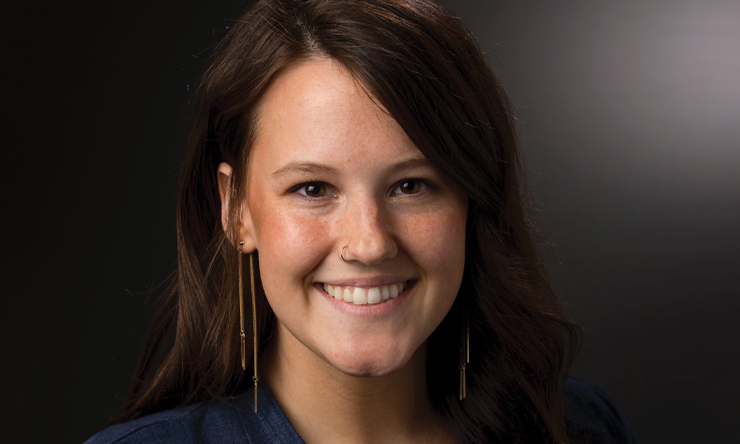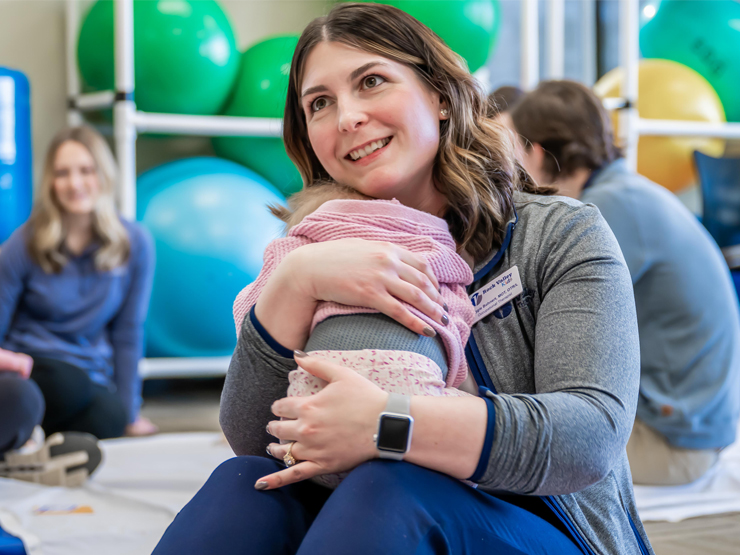An upbringing that stressed the value of an education and encouraged an unwavering sense of her own self worth led Sister Barbara Moore, CSJ, PhD, to Selma, Ala., for a few memorable days in March of 1965.
Sister Barbara said her experience in Selma during a pivotal moment in the American civil rights movement steeled her lifelong determination never to stay silent in the face of injustice.
Sister Barbara will be the commencement speaker at the St. Ambrose University 2013 Spring Graduation on May 11. She will be given an honorary Doctor of Humane Letters degree prior to addressing a class of 679 degree candidates at the 1 p.m. ceremony at the i Wireless Center in Moline, Ill.
A member of the Sisters of St. Joseph of the Carondelet for the past 50 years and a founding member of the National Black Sisters Conference, Sister Barbara was one of two African-American nuns who went to Selma in 1965 to stand with Americans marching for equal voting rights in the Jim Crow-era south.
She was among a large group of Catholic nuns from across the Midwest who came to be known as the "Sisters of Selma." The story of their involvement was documented in a 2007 PBS Frontline report "Sisters of Selma: Bearing Witness for Change."
Sister Barbara's experience in Selma and a lifetime of advocating for healthcare among the poor and disenfranchised make her a fitting commencement speaker at the conclusion of an academic year spent investigating race in America, said Sister Joan Lescinski, CSJ, president of St. Ambrose.
"She is a quiet, self-effacing, brilliant woman and has been active the past 50 years in efforts to advance civil rights for our country," said Sister Joan.
Sister Barbara marched in Selma between the infamous "Bloody Sunday" encounter, when police violently turned back marchers bound for the state capital of Montgomery, and the historic Martin Luther King Jr.-led march to Montgomery two weeks later, a walk made under the court-ordered protection of federal marshals, the Alabama National Guard and the US Army.
Sister Barbara still well remembers being face-to-face with helmeted, club wielding troopers on a march from Brown Chapel to the county courthouse in Selma. "When I went to Selma, I really didn't know what I was getting myself into, but it was a really profound experience," she said.
She said the things she felt and saw in Selma heightened the lessons she learned as "a child of the south." Her parents were born in Mississippi and she spent her first six years in Birmingham, Ala., before the family moved to St. Louis.
"I grew up with the stories of my parents and my aunts and uncles and their experiences with Jim Crow and, of course, we would visit family and I experienced some of that myself," she said.
As a child, she was included in family discussions and, even while in grade school, her knowledge was valued by adults who had not had as much formal education while growing up in Mississippi.
"I grew up knowing who I was and knowing my gifts and that I was certainly not better than anyone else, but I was certainly equal to anyone else," she said. "And to speak up for myself."
Her experience in Selma reinforced the importance of the latter, Sister Barbara said.
"I speak up when I feel I need to," she said. "I'm known for being straight-forward and I am willing to accept the consequences for that. But I think it is important not to stand by when I see things that I feel are not just or not ethical or that are immoral."
Sister Barbara has been active in health care and education for decades, beginning her career in nursing before moving into healthcare administration and healthcare education.
Sister Barbara earned a PhD in Higher Education Administration and a Master of Arts in Sociology from the University of Washington, Seattle; a Master of Science in Nursing from the University of California-San Francisco; and a Bachelor of Science in Nursing from College of St. Teresa (now Avila University) in Kansas City, Mo.
She left an administrative position in the nursing department at Avila University in 1988 to assist in providing healthcare in the inner city.
"I wanted to work with more people of color and reach out more to the poor," she said, noting the Samuel U. Rodgers Community Health Center in Kansas City, Mo., "was like a little United Nations. We had people coming in from all parts of the world and, at one time, we had 11 interpreters. ... It was a wonderful opportunity, a lot of fun but a lot of serious things going on."
Sister Moore said her address to the St. Ambrose Class of 2013 will touch on her roots and her profound experience in Selma as well as "the implications for what is going on here and now in our country."
News
Share This Story



